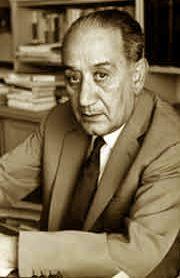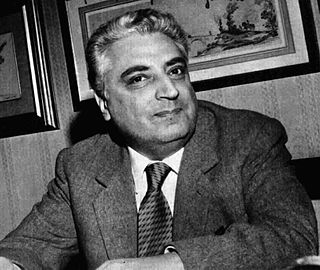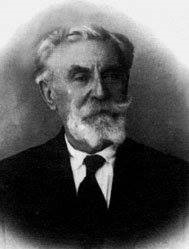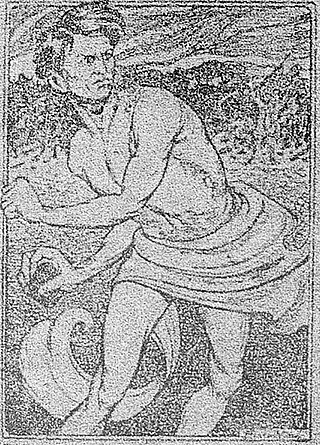
Giacomo Matteotti was an Italian socialist politician. On 30 May 1924, he openly spoke in the Italian Parliament alleging the Italian fascists committed fraud in the 1924 Italian general election, and denounced the violence they used to gain votes. Eleven days later, he was kidnapped and killed by Fascists.

Alceste De Ambris was an Italian syndicalist, the brother of fascist politician Amilcare De Ambris. He was a Freemason and had a major part to play in the agrarian strike actions of 1908 in Parma.

Secondino Tranquilli, known by the pseudonym Ignazio Silone, was an Italian political leader, novelist, and short-story writer, world-famous during World War II for his powerful anti-fascist novels. He was nominated for the Nobel Prize for Literature ten times.

Renzo De Felice was an Italian historian, who specialized in the Fascist era, writing, among other works, a 6000-page biography of Mussolini. He argued that Mussolini was a revolutionary modernizer in domestic issues but a pragmatist in foreign policy who continued the Realpolitik policies of Italy from 1861 to 1922. Historian of Italy Philip Morgan has called De Felice's biography of Mussolini "a very controversial, influential and at the same time problematic re-reading of Mussolini and Fascism" and rejected the contention that his work rose above politics to "scientific objectivity", as claimed by the author and his defenders.
The Aventine Secession was the withdrawal of the parliament opposition, mainly comprising the Italian Socialist Party, Italian Liberal Party, Italian People's Party and Italian Communist Party, from the Chamber of Deputies in 1924–25, following the murder of the deputy Giacomo Matteotti by fascists on 10 June 1924.
Giorgio Levi Della Vida was an Italian Jewish linguist whose expertise lay in Hebrew, Arabic, and other Semitic languages, as well as on the history and culture of the Near East.

Luigi Federzoni was an Italian nationalist and later Fascist politician.

Ettore Ovazza was an Italian Jewish banker. He was an early financer of Benito Mussolini, of whom he was a personal friend, and Italian fascism, which he supported until the Italian racial laws of 1938. He founded the journal La nostra bandiera. Believing that his position would be restored after the war, Ovazza stayed on after the Germans marched into Italy. Together with his wife and children, shortly after the Fall of Fascism and Mussolini's government during World War II, he was executed near the Swiss border by SS troops in 1943.
Cesare Rossi was an Italian fascist leader who later became estranged from the regime.

Mauro Del Giudice was an Italian magistrate, jurist and writer.
The Acqui Award of History is an Italian prize. The prize was founded in 1968 for remembering the victims of the Acqui Military Division who died in Cefalonia fighting against the Nazis. The jury is composed of seven members: six full professors of history and a group of sixty (60) ordinary readers who have just one representative in the jury. The Acqui Award Prize is divided into three sections: history, popular history, and historical novels. A special prize entitled “Witness to the Times,” given to individual personalities known for their cultural contributions and who have distinguished themselves in describing historical events and contemporary society, may also be conferred. Beginning in 2003 special recognition for work in multimedia and iconography--”History through Images”—was instituted.

Giuseppe Cobolli Gigli was an Italian engineer and politician. From 1935 to 1939, he was member of Benito Mussolini's Italian fascist government as minister of public works.

The Fasci d'Azione Rivoluzionaria was an Italian political movement founded in 1914 by Benito Mussolini, and active mainly in 1915. Sponsored by Alceste De Ambris, Mussolini, and Angelo Oliviero Olivetti, it was a pro-war movement aiming to promote Italian entry into World War I. It was connected to the world of revolutionary interventionists and inspired by the programmatic manifesto of the Fascio Rivoluzionario d'Azione Internazionalista, dated 5 October 1914.

The Assassination of Matteotti is a 1973 Italian historical drama film directed by Florestano Vancini. The film tells the events that led to the tragic end of Giacomo Matteotti and to the establishment of the dictatorship of Benito Mussolini in Italy. It was awarded with the Special Jury Prize at the 8th Moscow International Film Festival.
The Sandro Italico Mussolini School of Fascist Mysticism was established in Milan, Italy in 1930 by Niccolò Giani. Its primary goal was to train the future leaders of Italy's National Fascist Party. The school curriculum promoted Fascist mysticism based on the philosophy of Fideism, the belief that faith and reason were incompatible; Fascist mythology was to be accepted as a "metareality". In 1932, Mussolini described Fascism as "a religious concept of life", saying that Fascists formed a "spiritual community".

Angelo Tasca was an Italian politician, writer and historian. Born in Moretta, in the Piedmont region of Italy, he was a founding member of the Communist Party of Italy but was expelled in 1929 for his opposition to Stalinism and supporting the Right Opposition of Nikolai Bukharin. Having experienced persecution by the Fascist regime in Italy, he took refuge in France in 1926 and gained citizenship in 1936. After joining the French Section of the Workers' International in 1934, he worked as a writer for the newspaper Le Populaire.
The Premio Friuli Storia is an annual Italian literary award established in 2013 to promote standards of excellence in the writing of history books for a general readership. It is the only national Italian literary prize for non-fiction which entrusts the selection of the winner to a committee of non-specialist readers.
The National Council of Corporations was a constitutional organ of the Kingdom of Italy between 1930 and 1943.
Ernesto Daquanno was an Italian journalist during the Fascist regime, the last director of Agenzia Stefani, Italy’s main press agency.

Umberto Albini was an Italian Fascist politician and civil servant, who served as State Undersecretary for the Interior of the Kingdom of Italy from February to July 1943 and as prefect in several Italian cities, including Genoa, Naples and Palermo.










